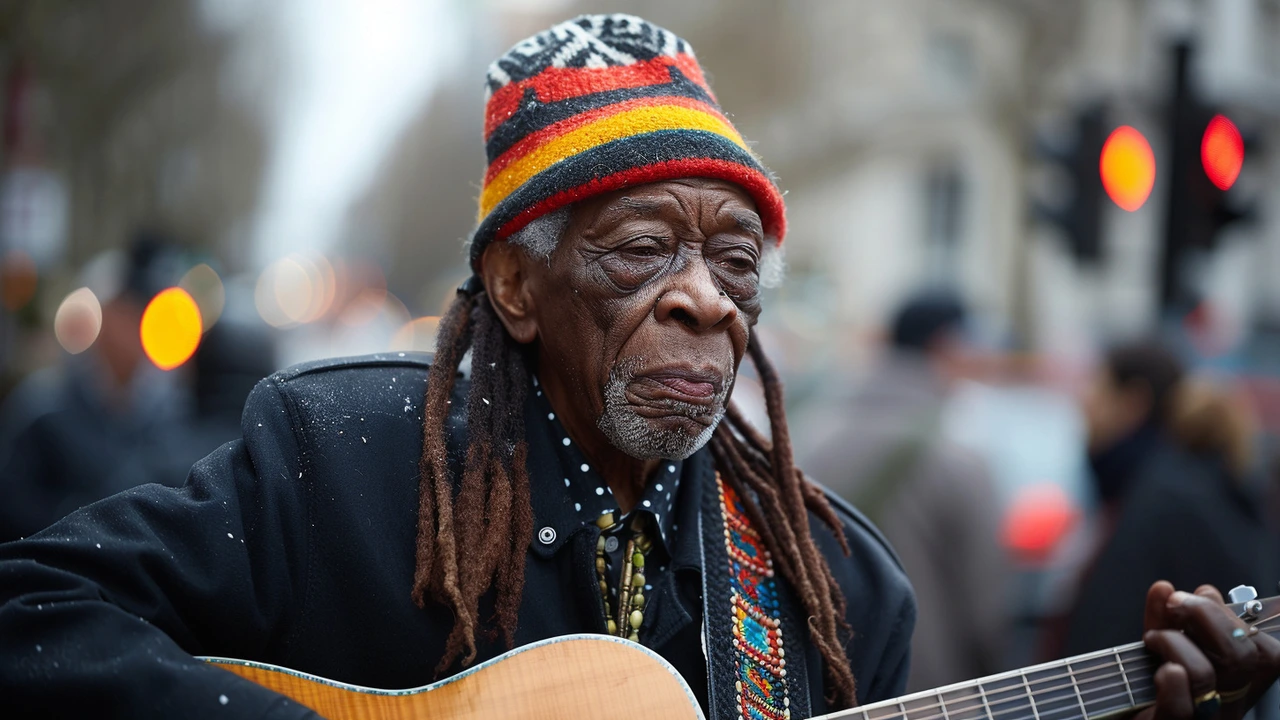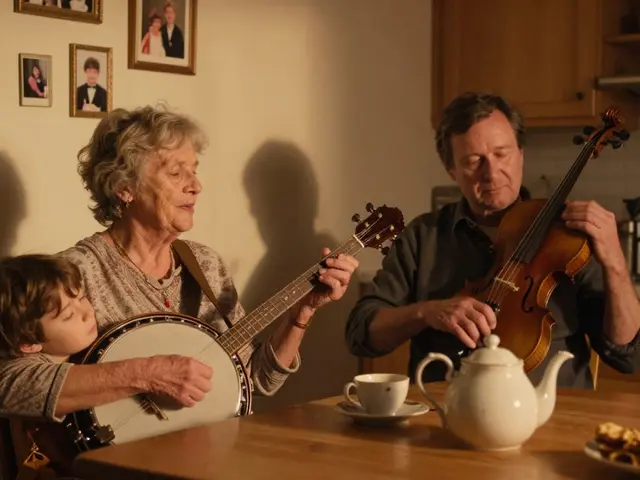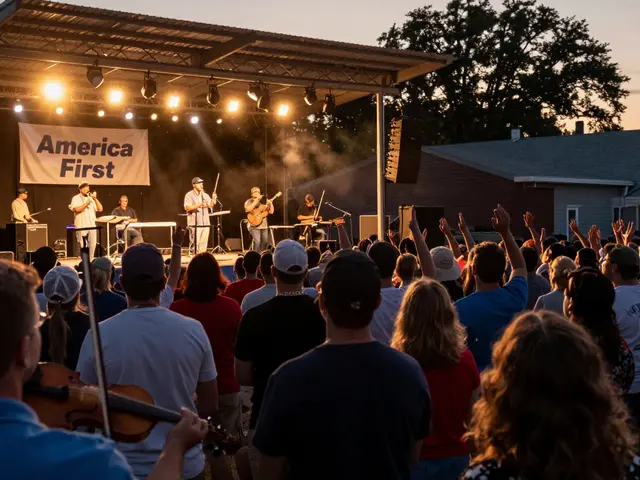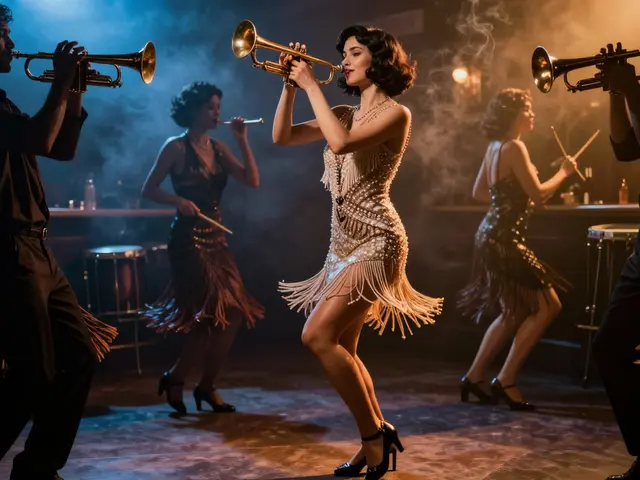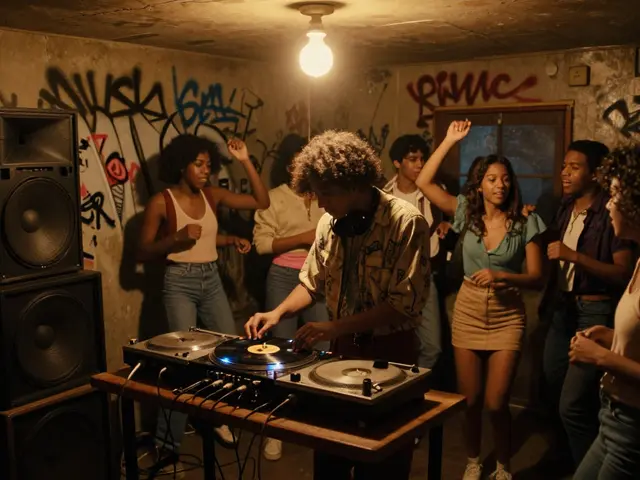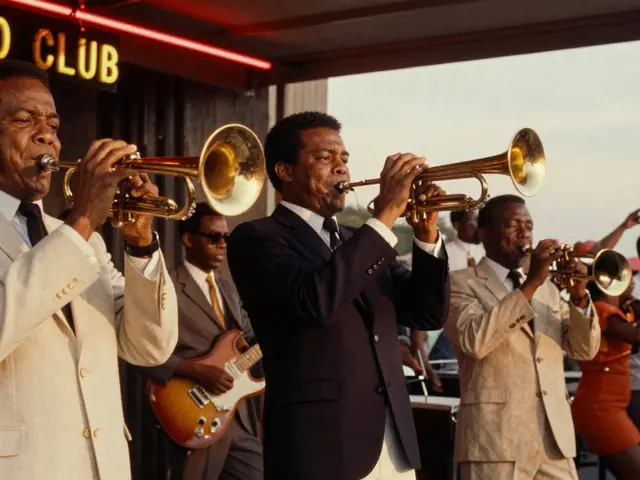The Roots of Reggae: A Historical Overview
At the heart of Jamaica's vibrant culture lies reggae music, a distinct sound that emerged in the late 1960s. It's a genre deeply intertwined with the country's history, shaped by African, European, and indigenous influences. The term 'reggae' itself is believed to have originated from 'rege-rege', a slang term for 'rags' or 'ragged clothing', symbolizing the struggles and resilience of the impoverished communities in Kingston, Jamaica. Early reggae was a slow, steady beat that evolved from earlier genres like ska and rocksteady, characterized by its offbeat rhythms, prominent bass lines, and socially conscious lyrics.
Reggae music rapidly gained popularity, not just in Jamaica but around the world, as a voice for the oppressed. It became synonymous with the Rastafari movement, which played a significant role in its thematic content. Rastafari, a socio-religious movement that emerged in Jamaica in the 1930s, emphasized African pride, the rejection of western materialism, and a spiritual connection to the homeland of Ethiopia. Many reggae lyrics reflect Rastafarian beliefs, including unity, peace, and resistance against oppression. Artists like Bob Marley, Peter Tosh, and Bunny Wailer used the genre to spread messages of love, freedom, and social justice, making reggae a powerful tool for cultural and political commentary.
Bob Marley: The King of Reggae
The name Bob Marley is synonymous with reggae music. Born on February 6, 1945, in Nine Mile, Jamaica, Marley became not just a music icon but a global symbol of peace and resistance against injustice. From his early days with The Wailers to his solo career, Marley's songs like 'No Woman, No Cry', 'One Love', and 'Redemption Song' resonated with audiences worldwide. His music was deeply rooted in his Rastafarian beliefs, and he utilized his platform to advocate for peace, unity, and social change. Marley's impact on music and culture was profound, earning him a spot in the Rock and Roll Hall of Fame and selling over 20 million records.
Marley's legacy extends beyond his music. He is celebrated as a revolutionary who used his art to challenge societal norms and inspire movements for change. His influence is evident in various musical genres and cultural movements globally, solidifying his status as the undisputed king of reggae. Marley's life and work continue to inspire new generations of artists and activists, proving that his messages of love and resistance are as relevant today as they were during his lifetime.
Reggae's Evolution and Global Influence
Reggae's journey from the streets of Kingston to global prominence is a testament to its universal appeal. The genre has evolved over the decades, giving rise to subgenres like roots reggae, dub, and dancehall. Each brings its unique flavor while retaining the essence of reggae's rhythm and message. Roots reggae, for example, focuses on heavy Rastafarian influences and social issues, while dub emphasizes music production techniques and instrumentals. Dancehall, which emerged in the late 1970s, incorporated electronic instruments and sampling, leading to a faster, more dance-oriented sound.
The international success of reggae has made it a influential cultural export for Jamaica. Artists from around the world have drawn inspiration from reggae, infusing its sound and message into their music. In countries like the UK, reggae influenced the punk movement and other genres, creating a vibrant music scene that celebrated diversity and rebellion. Reggae's influence can also be seen in hip-hop, with many early hip-hop artists sampling reggae tracks and adopting the genre's rhythm and style.
The Sound and Rhythm of Reggae
What sets reggae apart is its distinctive rhythm, often referred to as the 'one-drop' beat. This rhythm is characterized by the emphasis on the third beat in a 4/4 time signature, with the bass guitar and drums playing a crucial role in creating its unique sound. The syncopated, offbeat rhythms of reggae are not only catchy but also serve to convey the genre's spirit and message. Lyrics in reggae music often explore themes of love, social justice, and resistance, offering both a reflection of societal struggles and a hopeful outlook for the future.
The instrumentation in reggae music typically includes drums, bass guitar, electric guitar, keyboard, and for many tracks, the brass section. The use of the melodica, a wind instrument, has also become synonymous with the reggae sound, adding a distinctive timbre that complements its rich harmonies. These elements come together to create a sound that is at once relaxing and invigorating, capable of moving both the body and the soul.
Reggae and Social Movements
Reggae music has long been associated with social and political movements, serving as a voice for those fighting injustice and inequality. In the 1970s and 1980s, reggae became an anthem for anti-apartheid movements in South Africa and civil rights movements in the United States. The genre's message of unity and resistance resonated with people across the globe, making it a powerful tool for social change. Songs like 'Get Up, Stand Up' by Bob Marley and Peter Tosh have become rallying cries for activists, emphasizing the importance of standing up against oppression.
The connection between reggae and social movements is not coincidental. The genre's roots in the Rastafarian movement and its focus on themes like liberation, equality, and justice naturally align it with global struggles for human rights. Its widespread appeal and ability to inspire and mobilize people underscore reggae's enduring relevance as a cultural and political force.
Experiencing Reggae Today: Festivals and Beyond
Reggae music continues to thrive, celebrated at festivals, concerts, and clubs around the world. Events like the Reggae Sumfest in Jamaica, Rototom Sunsplash in Spain, and the Sierra Nevada World Music Festival in the United States showcase the genre's enduring popularity and diverse appeal. These festivals not only feature legendary artists and rising stars but also immerse attendees in the rich culture and history of reggae music.
Experiencing reggae live is an unforgettable experience, where the powerful messages, infectious rhythms, and communal spirit of the music come to life. It's an opportunity to connect with the heart and soul of Jamaica, understanding the deep roots and global impact of this unique genre. Whether you're a longtime fan or new to reggae, its ability to bring people together and inspire change is a testament to its timeless appeal.

